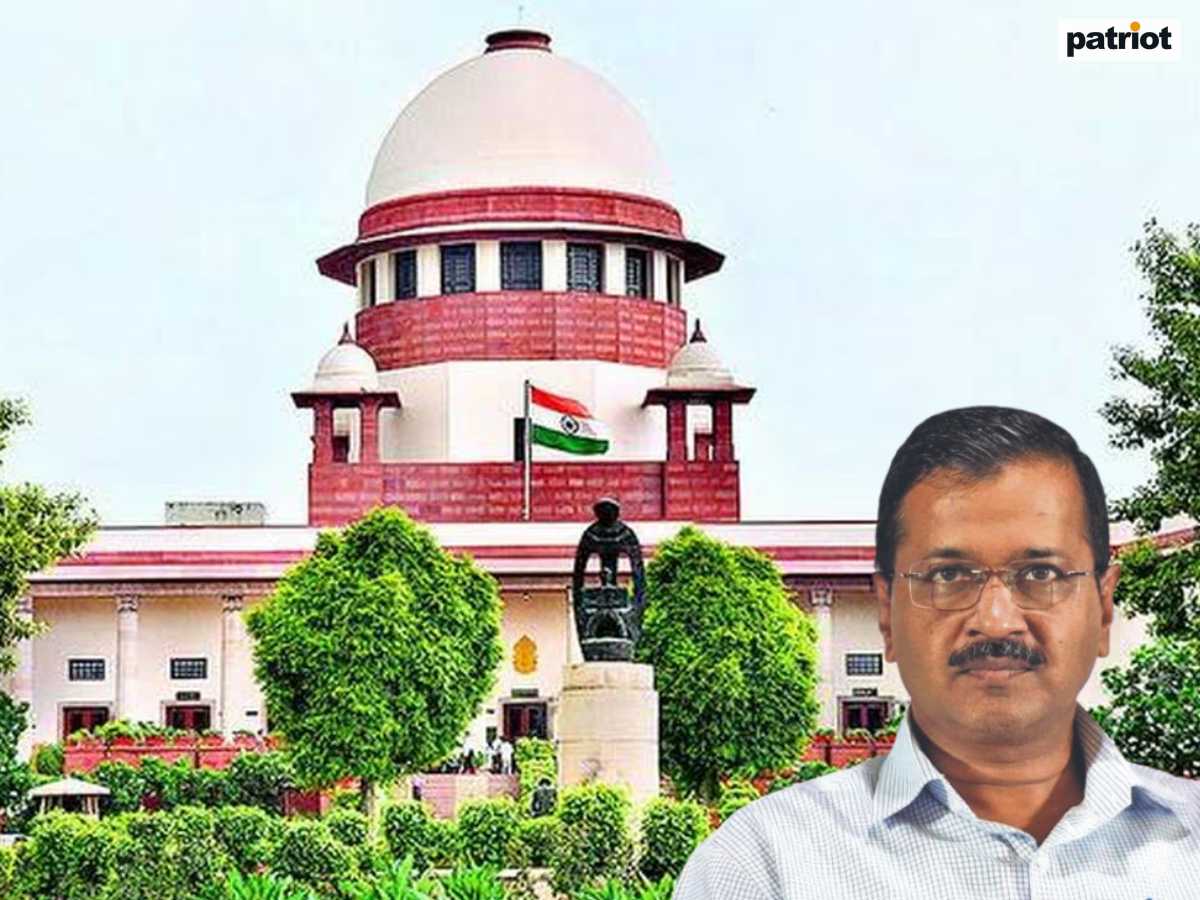The Supreme Court on Thursday reserved its judgment on petitions filed by Delhi Chief Minister Arvind Kejriwal seeking bail and contesting his arrest in the liquor policy case, which is under investigation by the Central Bureau of Investigation (CBI).
Kejriwal, leader of the Aam Aadmi Party, has challenged the Delhi High Court’s August 5 decision that dismissed his plea against the CBI’s arrest. He has also submitted a Special Leave Petition against the High Court’s refusal to consider his bail request.
The CBI is investigating allegations of corruption in the case, while the Enforcement Directorate (ED) is looking into related money laundering claims.
Representing Kejriwal, Senior Advocate Abhishek Manu Singhvi informed a bench comprising Justices Surya Kant and Ujjal Bhuyan that the chief minister was granted release orders three times in the money-laundering case, despite the stringent provisions of Section 45 of the Prevention of Money Laundering Act.
Section 45 requires the court to believe there are reasonable grounds that the accused is not guilty and will not commit further crimes if granted bail.
Singhvi referenced the Supreme Court’s interim bail orders from May 10 and July 12, and the regular bail order from June 20, which was later stayed by the High Court.
On July 12, the Supreme Court granted Arvind Kejriwal interim bail in the ED case. However, he remained in jail due to his arrest by the CBI on June 25 in connection with the same case.
During Thursday’s hearing, Singhvi argued that Kejriwal’s CBI arrest was an “insurance arrest,” stating that he hadn’t been detained for nearly two years after the case was filed in August 2022.
Singhvi also emphasised that Arvind Kejriwal met the triple test for bail: he is not a flight risk, is unlikely to tamper with evidence, and is not expected to influence witnesses.
Challenging Kejriwal’s CBI arrest, Singhvi pointed out the absence of a notice under Section 41A of the Code of Criminal Procedure, which requires a notice of appearance before an arrest.
Also Read: Three Delhi bus marshals die within a month amid salary crisis
In response, Additional Solicitor General SV Raju, representing the CBI, argued that the notice was unnecessary since Kejriwal was already in custody, dismissing Singhvi’s argument as a “technicality”.
Singhvi countered, stating, “Matters of liberty cannot be a technicality,” and highlighted the importance of procedural safeguards.
Raju suggested that Kejriwal should first seek bail from the trial court, to which Singhvi replied that the trial court had already considered the matter.
Singhvi also cited the Supreme Court’s observation during AAP leader Manish Sisodia’s hearing, in which the court had criticised the need for repeatedly approaching different courts, describing it as akin to a “game of Snake and Ladder.” Sisodia was granted bail by the Supreme Court on August 9.
Singhvi also mentioned that the Supreme Court had noted the liquor policy case trial was unlikely to conclude soon.
In response, Raju pointed out that other co-accused individuals, including Sisodia and Bharat Rashtra Samithi leader K Kavitha, had first approached the trial court. Kavitha was granted bail by the Supreme Court on August 28.
Kejriwal was arrested by the ED on March 21 as part of its investigation into money laundering linked to the liquor policy case, based on a CBI FIR.
Both the CBI and ED allege that the Aam Aadmi Party government altered Delhi’s now-scrapped liquor policy by increasing the commission for wholesalers from 5% to 12%, allegedly allowing bribes from wholesalers with significant market influence.





